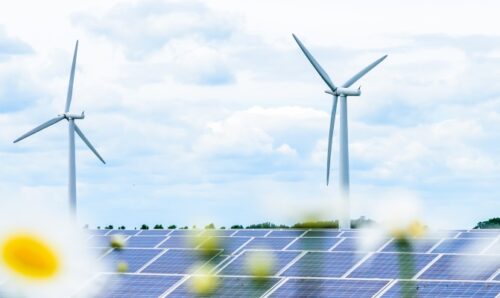How neo-liberal economics has held back new nuclear build
New nuclear 29 February 2016
We finish our discussion of new nuclear with a look into how modern day economics has impacted nuclear power.
We live in an economic system constructed around the ideology of neoliberalism. This laissez-faire economic thinking prioritises the free-market and the curtailing of the state, which was actualised in the 1980s by politicians like Ronald Reagan and Margaret Thatcher. They took the writings of previously unfashionable thinkers like Friedrich Hayek and Milton Friedman and implemented them as policy, facilitating Big Bang in the stock markets during the eighties and creating legislation and reforms to pander to the market. This helped to generate a services and commodity-based economy whilst selling public services to private companies, for example in the UK, British Gas, British Telecom and British Rail. New Labour continued in this vein when they came to power in 1997, with Tony Blair forming the perfect successor to Thatcher, continuing her economic legacy.[1]

One of the most important aspects of neo-liberalism is that it emphasises the importance of profit, actively encouraging competitiveness and individualism, creating a meritocratic society that aims to continuously financially reward the game of speculation. Government became less and less interested in providing a cohesive state that privileged the collective and moved to enourage a culture of finance, which privileges a select few at the top and exacerbates capitalism’s already predictable tendency to swing between boom and bust. Shareholders are equally if not more important than customers to many large businesses and corporations, including energy companies. Whenever we hear news coverage now about the fall in wholesale oil prices, for example, the most important factor seems to be ‘how will it affect the shareholder?’. Furthermore, shareholders are active in deciding on the direction and strategy implemented within fossil fuel companies, for example Shell.[2]
Nuclear is not exempt from this system, which manifests itself in two ways: primarily, the development of nuclear sites in Britain was significantly reduced during the time in which New Labour were in power. Building nuclear power stations requires enormous capital investment and many years to build, and will take a long time to run a large profit unlike the more seductive, fuel-price dependent energy sources of oil, coal and natural gas. As profit and growth are prerequisites of neo-liberalism economics, it is clear that nuclear power is too costly, and too long-term a project, for private energy companies
Secondly, it is important to recognise that nuclear is not entirely exempt from the neo-liberal economic system. Many of the nuclear energy providers sell shares, including uranium mining companies. The significant difference, however, is that most of the shares are owned by governments and district legislature, from France and China to Brazil, Canada, the Czech Republic and many, many more. Nuclear requires enormous state backing. It is extremely telling what kind of a government wants to invest in nuclear and what kind of government does not. It is the role of government, I would argue, to act in the interests of people and not profit. This explains the red herring that is Hinkley Point C. Whilst the go-ahead has been given for two new reactors to be constructed at Hinkley Point C, it is the Chinese Government that will be funding this project and owning a £24 billion stake in the power station.[3] It is deeply ironic that a Communist state will be doing a lot of the financial leg work in the development of this power station on behalf of a neo-liberal government that still seeks to prioritise and reward fossil fuel providers by giving tax breaks to those companies. Under the pretence of providing jobs, enhancing technology and securing a long-term energy source for the future (all language of left-wing politics), the Conservatives have pushed ahead with Hinkley Point C whilst maintaining their neo-liberal agenda.
References
[1] ‘Our greatest achievement was Tony Blair’, [Margaret Thatcher] declared to her adoring flock. ‘We forced our enemies to change’. Labour might have been in office, but, as far as Margaret Thatcher was concerned, they were keeping the flame of her political beliefs well and truly burning’. Owen Jones, The Establishment: And how they get away with it (Penguin: London, 2015), p.51.
[2] http://www.bbc.co.uk/news/business-35359219
[3] http://www.theguardian.com/environment/2015/oct/20/china-to-take-one-third-stake-in-24bn-hinkley-nuclear-power-station



Interesting. But China operates under state capitalism therefore there is no irony.
I agree with the majority of this article, although it’s important to point out that capitalism isn’t the problem, it’s unchecked free-market capitalism that is. I think if we followed the economic thinking in, for example, Scandinavia and also still had more publicly owned companies, we could be building nuclear power plants as cheap as the Chinese do.